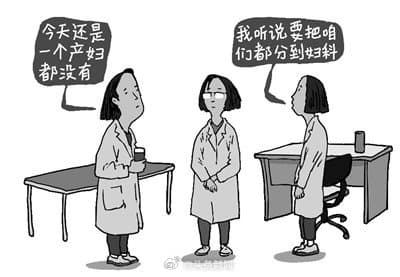Why did the 90s generation decide not to have children?
In recent months, concern has been growing over the closure of the obstetrics department at Wenzhou Ningbo City Second Hospital in China. The move has sparked heated discussions among netizens on social media platforms, with many expressing a range of opinions and concerns about the declining birth rate in the country.

28 September 2023
According to reports, the hospital's obstetrics department closed down due to a lack of patients. This is not an isolated case, as other hospitals have also experienced a drop-off in the number of births. In fact, a doctor from the gynecology department of Shaoguan County Hospital revealed that the number of births has decreased significantly and it no longer makes sense to continue offering such services. The department ceased operations altogether as of October last year.
The reasons behind this decline in birth rates among post-90s generation are a matter of discussion, with various hypotheses put forward by netizens. One common theme is the increasing financial burden on young people due to rising housing prices, increased commercialization of education and work, and the high cost of raising children. Many commenters express that they can barely make ends meet after struggling hard and are not able to afford overtime work or time off for childcare as rewards instead of bonuses.
This burden is compounded by the fact that many new mothers feel pressure from societal norms to have a son, leading some to try multiple times until they succeed in having one. The closure of obstetric and gynecological services in hospitals due to low patient numbers has also raised questions about the future of such resources in areas where birth rates are declining.
Some netizens argue that those who do not wish to live do not represent everyone's desire, but rather people with defective genes that are beneficial for society as they self-destruct. They suggest focusing on improving living conditions and providing better benefits for having children.
In conclusion, the closure of obstetrics departments in hospitals due to low patient numbers is a reflection of the broader trend of declining birth rates among younger generations in China. The reasons behind this trend are complex and multifaceted, with factors including financial burdens, societal expectations, and changes in lifestyle and priorities playing significant roles. As the Chinese population continues to age, finding solutions to these challenges will be crucial for maintaining a balanced and sustainable demographic landscape.



